
【Initiative】Heleanna Georgalis : Moplaco
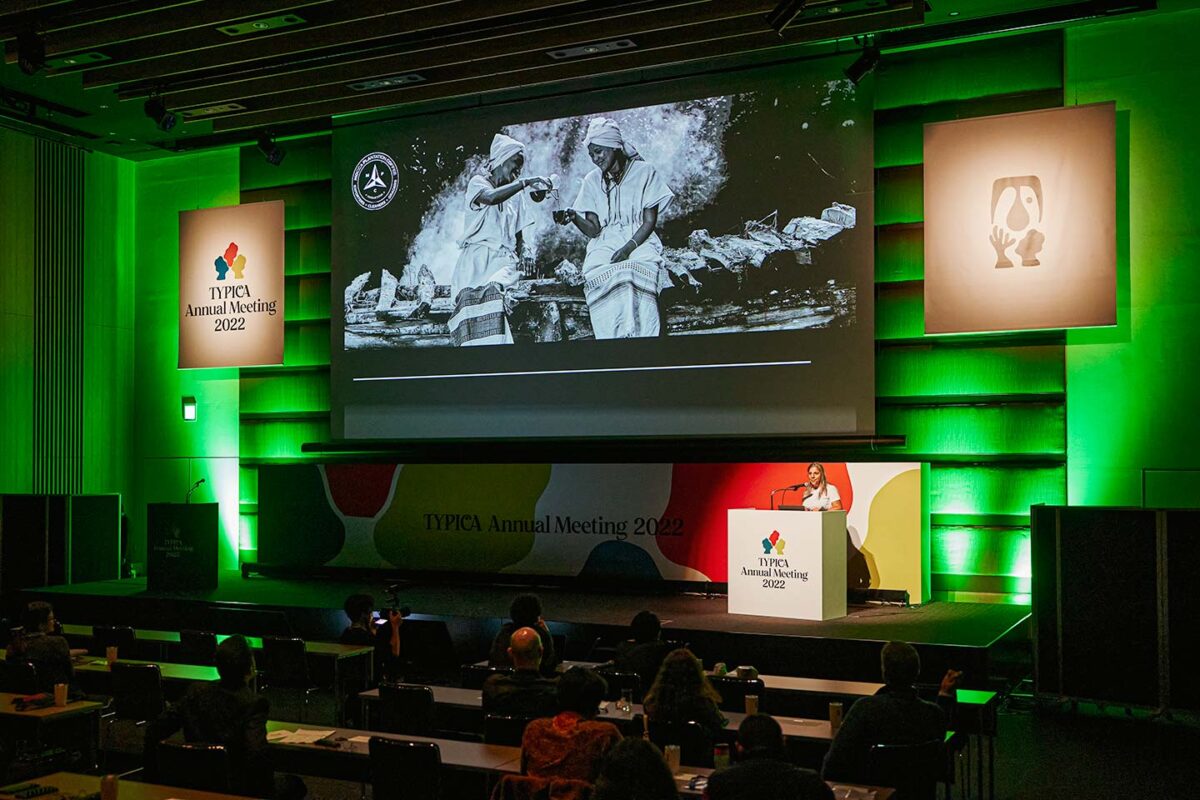
So first of all, I would like to thank Ayane and Masa for today. It was a really unexpected meeting. So well planned and organized that we need you to come to Ethiopia to help us, I think. And thank you for Ayumi for getting us here because our visa process was very long.
And it’s really an honor to be among so many coffee producing countries, and to be asked questions that made us think during the shrine visit especially.
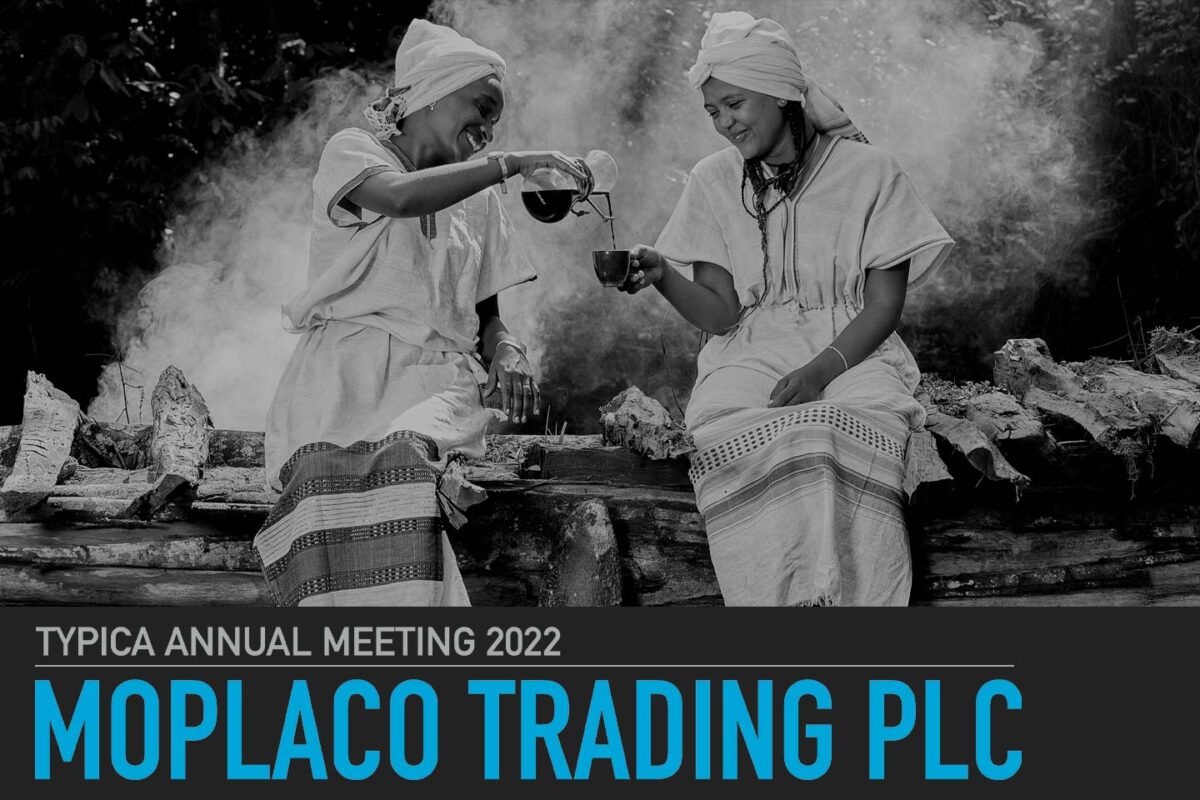
So my name is Heleanna. I am of Greek origin, but I was born and raised in Ethiopia until the age of six. And then I had to leave because of the communist regime that came.
And my family remained there, we are the fourth generation. And unlike many of you I never wanted my daughter to be the fifth. Why? Because coffee is so difficult and challenging, so intransparent and so flexible in a bad way. So but having this meeting and seeing the future that Ayane and Masa have envisioned, maybe there is a future for coffee producing.
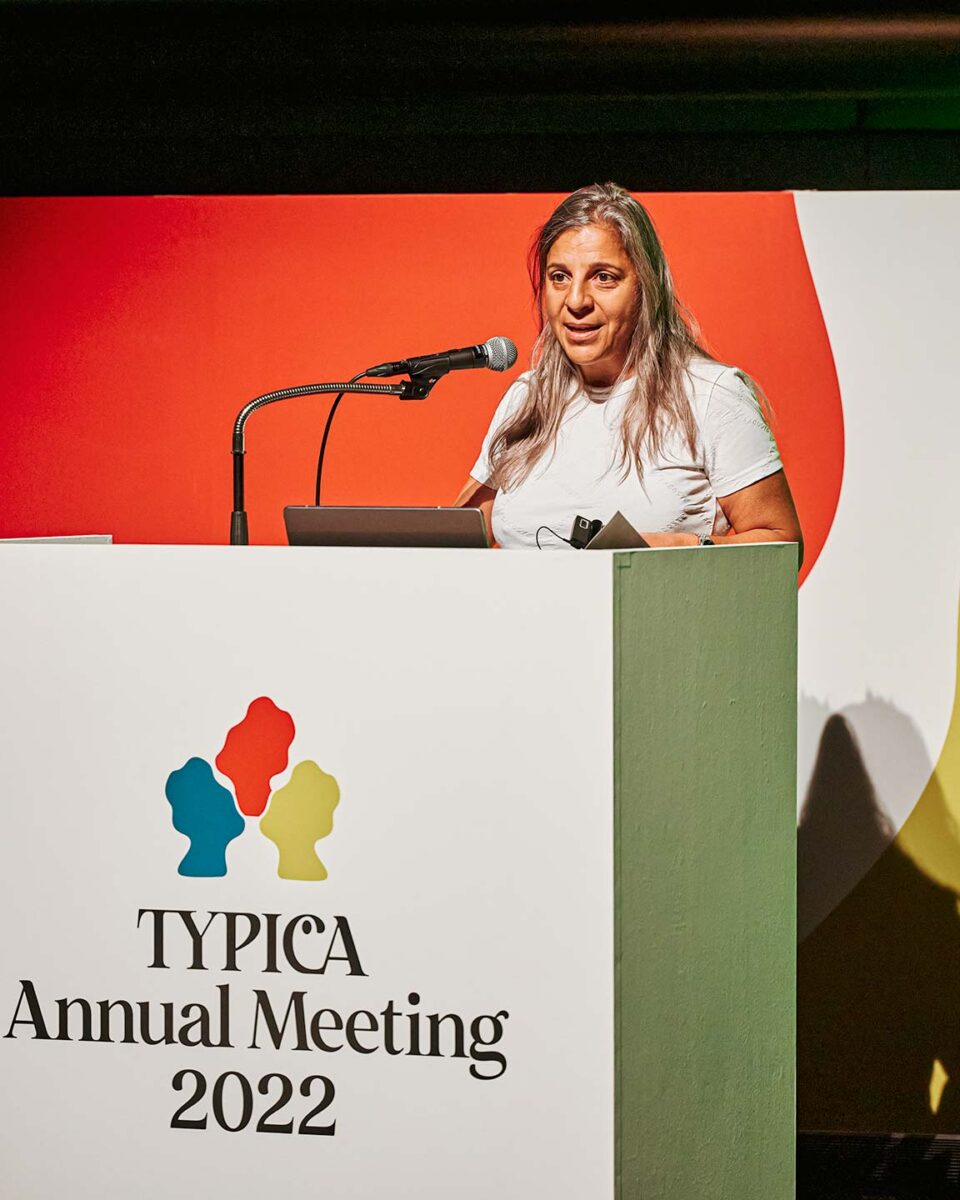
So I came into coffee very unexpectedly, despite having born into it. So I was in Europe enjoying my life, living in Spain. Having done my MBA, being an economist, having worked in a bank, enjoyed a lot of money by myself. And then suddenly I lost my father in 2008.
So these are the moments in life that one is found with the unexpected. So the unexpected for me is coffee, was Ethiopia. And it was a country that I never thought I would go back. Because when we were during the communist times, the country really slipped into the dark ages. So we would go from Greece or Spain, and we wouldn’t see a future. So I thought this is not for me.
And then I didn’t have a choice. Because destiny chooses for you sometimes. So I moved there in 2008.
It’s been 15 years. I have to tell you the longest I’ve ever lived in a country because every two years I like to move. So I lived in Greece for 10 Ethiopia for 15 and no other countries for two or three years.
So I am a citizen of the world and I like to think myself of this way. So I accept every culture, every religion and every country.
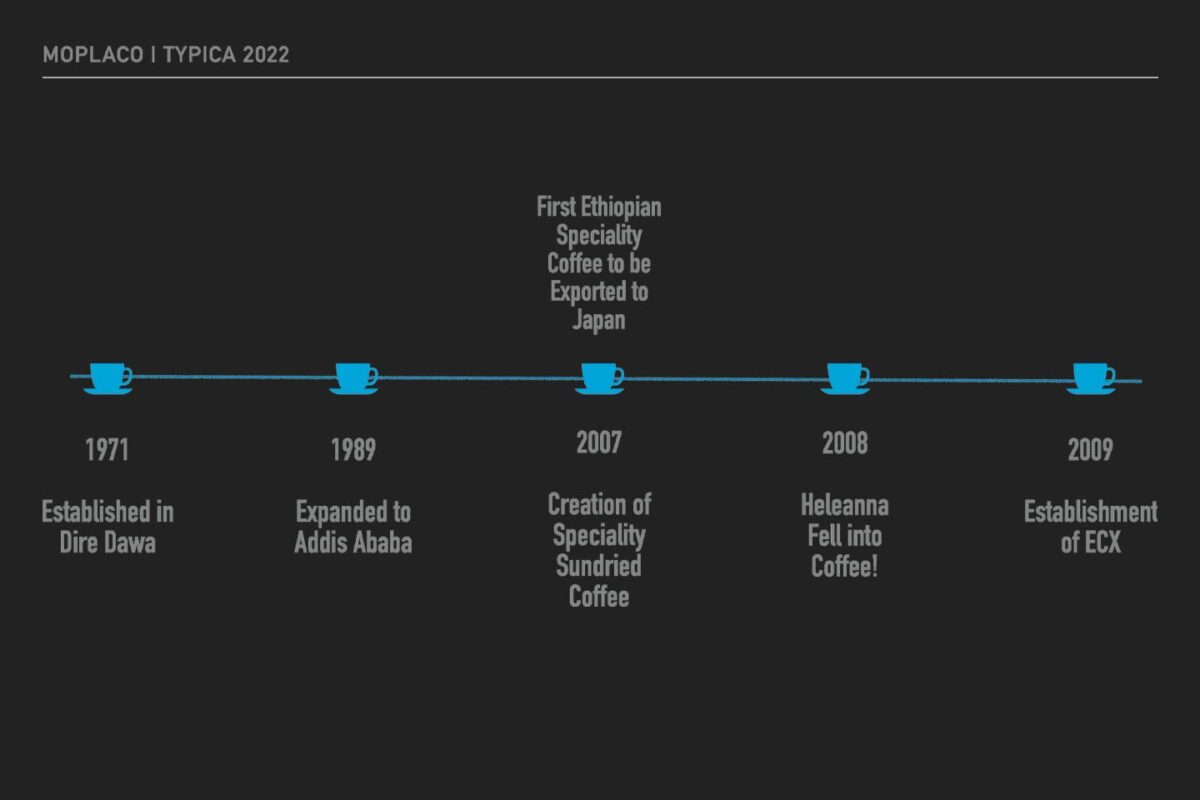
Our company was established in 1906. And through all this time, it has been evolving. So it was a coffee supplier in the mountains of Harar. It became a coffee exporter, in Dire Dawa. Then eventually, we moved to Addis Ababa, where all the coffee export was being produced.
And in 2007, my dad was the one that created the first specialty coffee. I would like to say in the world because sun dried coffee at that time, was only produced in patios. And in Ethiopia, we were only exporting grade four and five.
So with the help of some Japanese traders, he decided that sun dried coffee cannot be so bad because some dried fruit is not bad. In fact, sun dried fruit is more complex. So with the help of Japanese and they established this African beds that were already used, but not properly processed.
So that coffee won two times, the Taste of Harvest. From then on, the world is producing sun dried specialty coffee. It was the first coffee that ever came to Japan. And at that time, coffee in Ethiopia was sold for 90 cents a pound. That coffee was sold for $10 a kilo. So it was groundbreaking and I think for most of us this time.
So in 2009, we had the establishment of the commodity exchange in Ethiopia. That reversed whatever we knew about Ethiopia at that time. And then the rest is history. The coffee has changed again. The system is changed again.
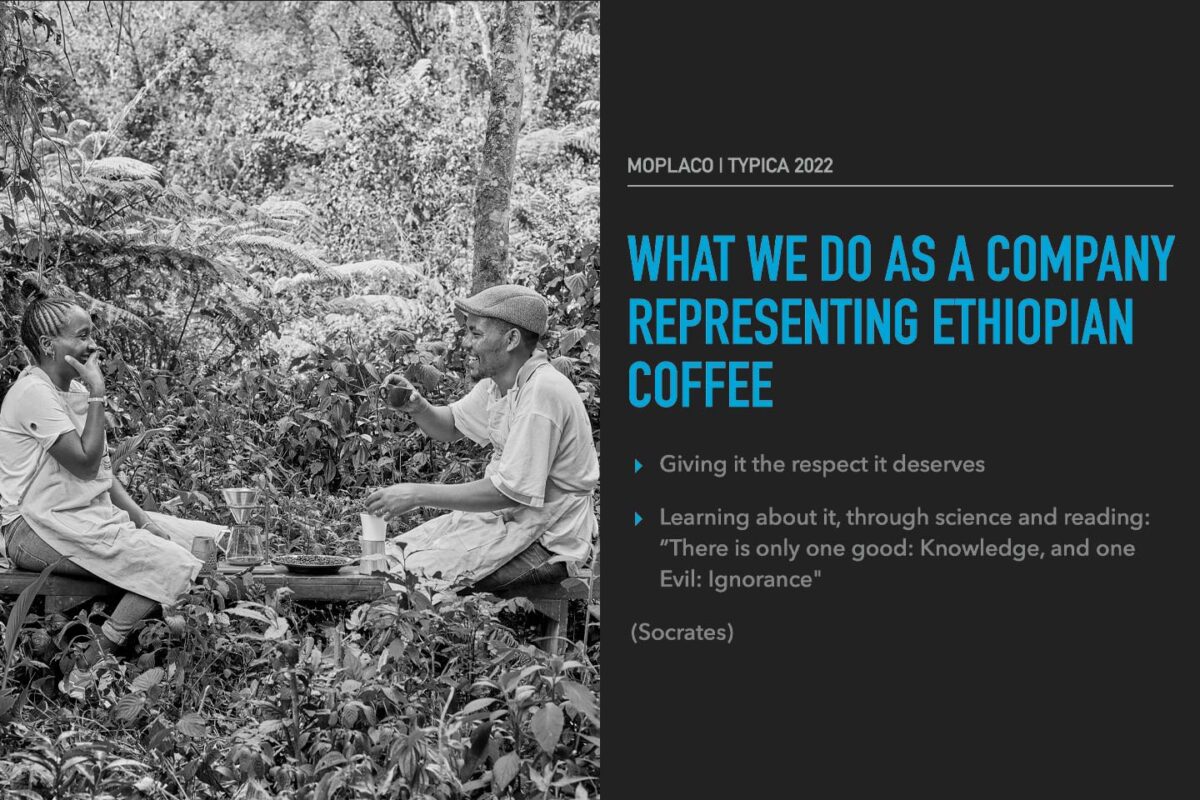
But we are here, evolving as well, as much as the system. So what do we do as a company representing Ethiopian coffee? Again, Masa was asking me a lot of philosophical questions and I think the basic thing is we give coffee respect, and most people didn’t give it respect until now.
So we also learn about it. We travel. Because knowledge is never enough. And as Plato used to say, knowledge is everything and ignorance also.
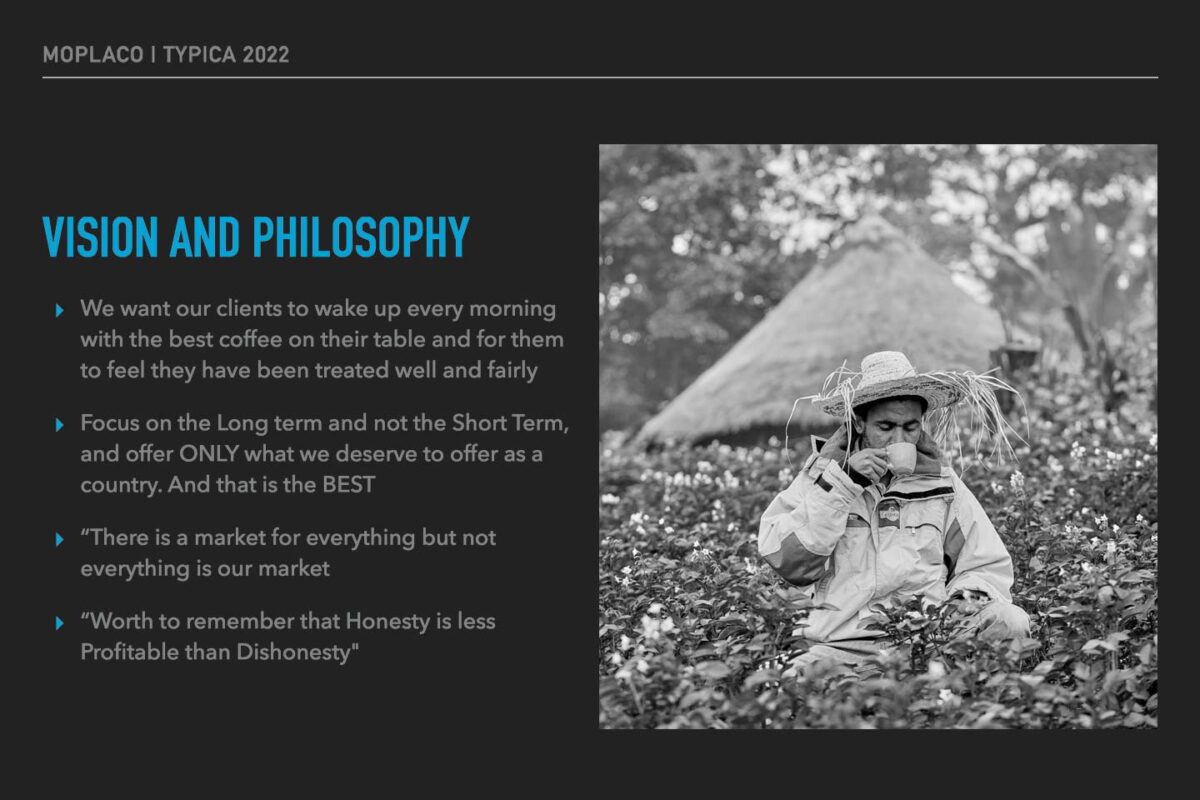
So the vision and philosophy of the company. I wake up every morning thinking that I want to drink good coffee. I get so disappointed when I go to restaurants and hotels and the only coffee they give us is bad. And I wonder why.
There are so many producers striving every day to produce better quality. So my vision is to produce the best that I can. And Ethiopia deserves that because it has one of the best coffees in the world.
The other thing is I want to focus on the long term and not on the short term. And my philosophy is there is a market for everything but not everything is our market.
The other thing I try to teach my people every day is that honesty is really cheap. This honesty earns you a lot of money. So we try to live with this philosophy and vision.
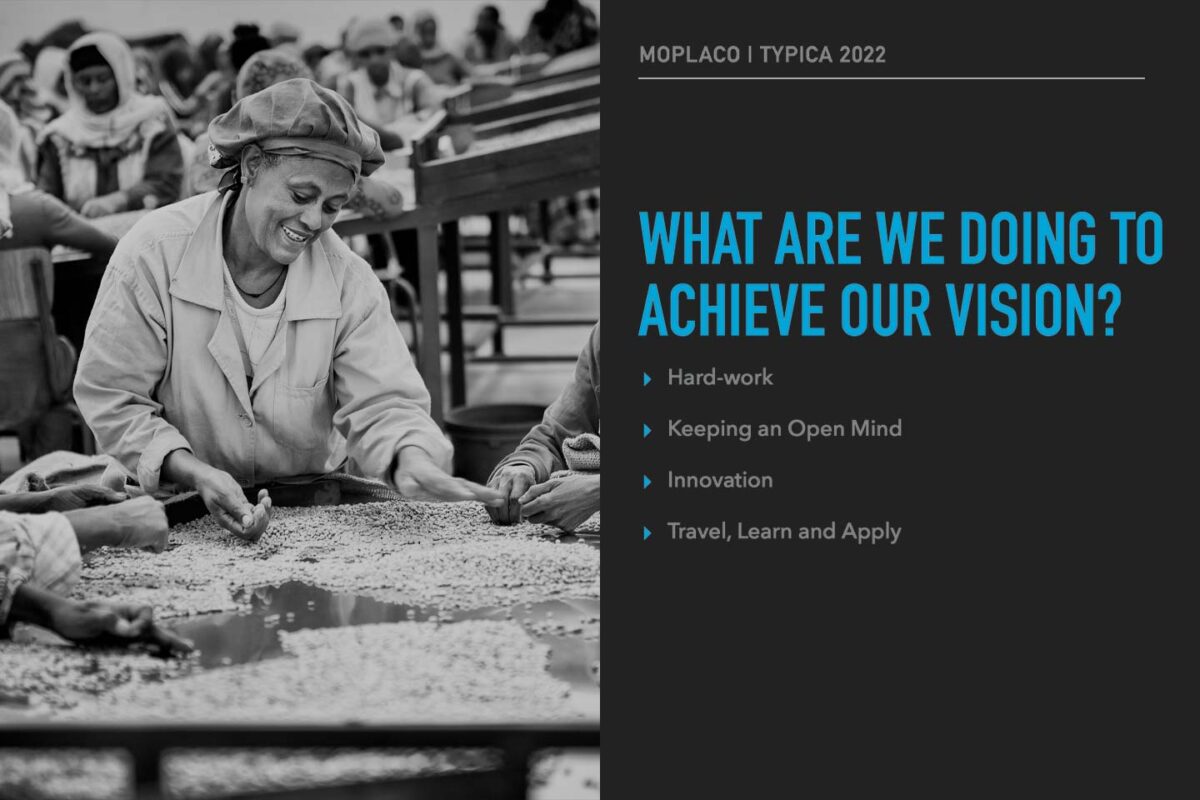
So what are we doing to achieve it? And that’s a very hard question to answer, because it’s very difficult to establish steps every day that are going to make you achieve this vision.
So we work hard and there is no turning back on that. We keep an open mind, because every time we learn. We innovate by learning. And we travel, learn, and apply.
So my biggest lessons in life or about processing coffee came from Colombia in 2012. A country that I never thought I would visit. Because everybody knew about Pablo Escobar. So I used to think that in Colombia there is only Pablo Escobar. And when I arrived, it was a paradise, with people that were very innovative.

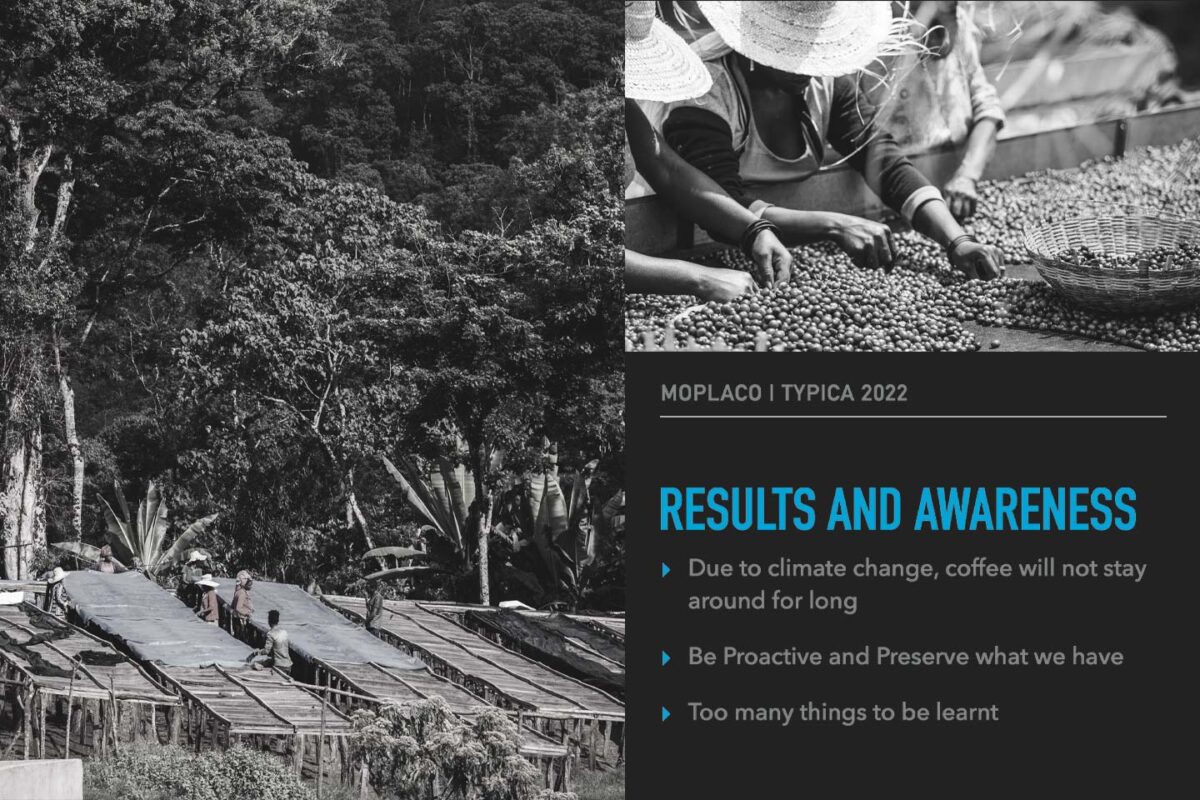
So what are the results and the awareness we are creating? So due to climate change, I think coffee will not stay around us for long unless we actually are proactive. We are proactive and we try to preserve what we have. So now we have a farm in the last indigenous forest of Ethiopia called Sheka, we are giving a lot of lessons to the farmers about the importance of forest.
So one thing we need to understand in our white minds is that farmers need coal in order to cook and keep warm. So when we don’t understand why people are cutting the trees, we need to understand why actually they need to cut a tree.
So the first time I went to Sheka there was no electricity. I had very cold water and I couldn’t cook my food. What do we do? Cut a tree. So how do we have to educate the farmers? We have to give them alternatives. That’s the first thing.

So now what do we provide? We provide biogas to them, in Sheka. We have also established solar panels and we are using hydro-electrical power because we have a river running through the farm. And we worked with the government closely in order to put a generator in the river and provide electricity to the village at least nearest to the farm.
And again, this was a project I saw in Guatemala, in a very famous farm called El Injerto, that they have established a hydroelectric plant inside the farm. So farmers are very reluctant. They don’t believe they can change their life but slowly, slowly we are seeing change.
So what else do we do to create results and awareness? We have too many things to learn. So we always bring people to teach our farmers new things. So for example, we are teaching them about bio compost right now. We are also teaching them how to create fuel by themselves.
Because apparently many NGOs had established biofuel stations but there was no follow up. So people would abandon. So now we do have a follow up and we have established three biofuel stations inside the village that we work with.
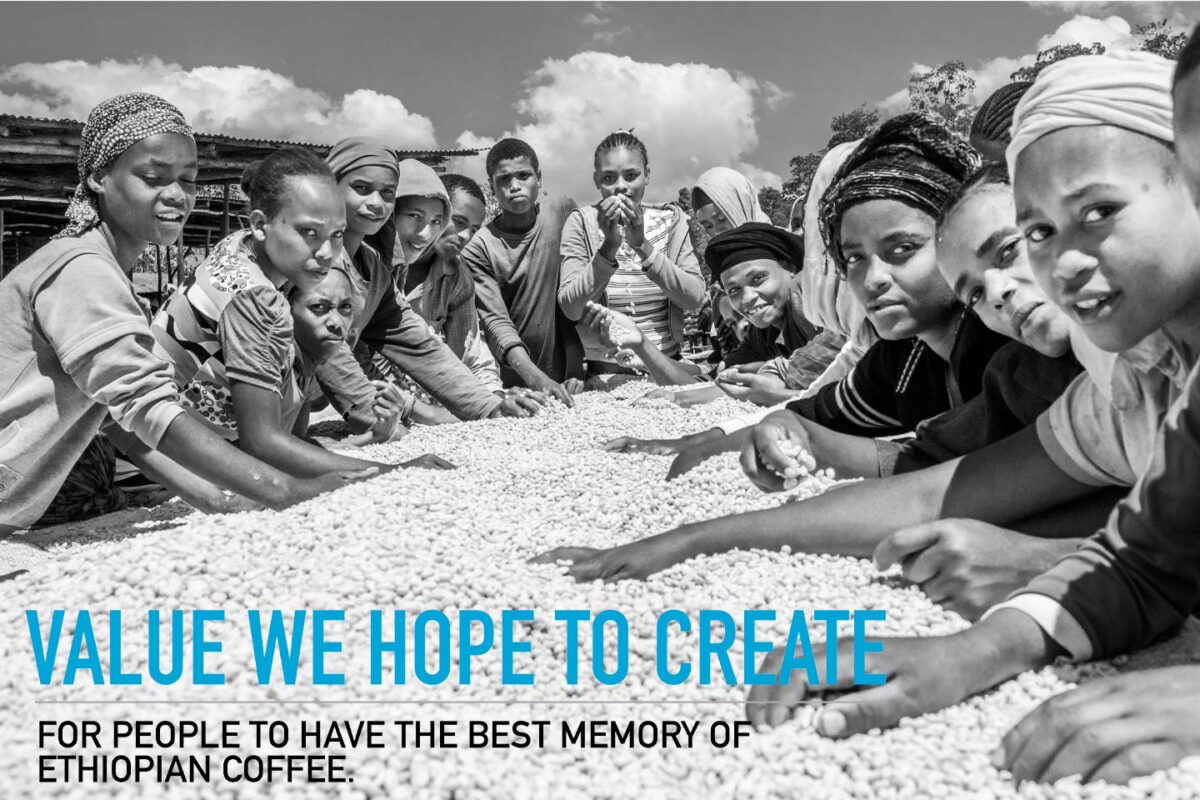
So what is the value we hope to create for people to have the best memory of Ethiopian coffee?
So many times I used to come to Japan. At the beginning, the only memory of Ethiopian coffee was soluble. Soluble coffee doesn’t taste like anything other than milk and sugar. So I really want to create this value for the people around me, to really taste coffee and enjoy it as much as they taste wine.
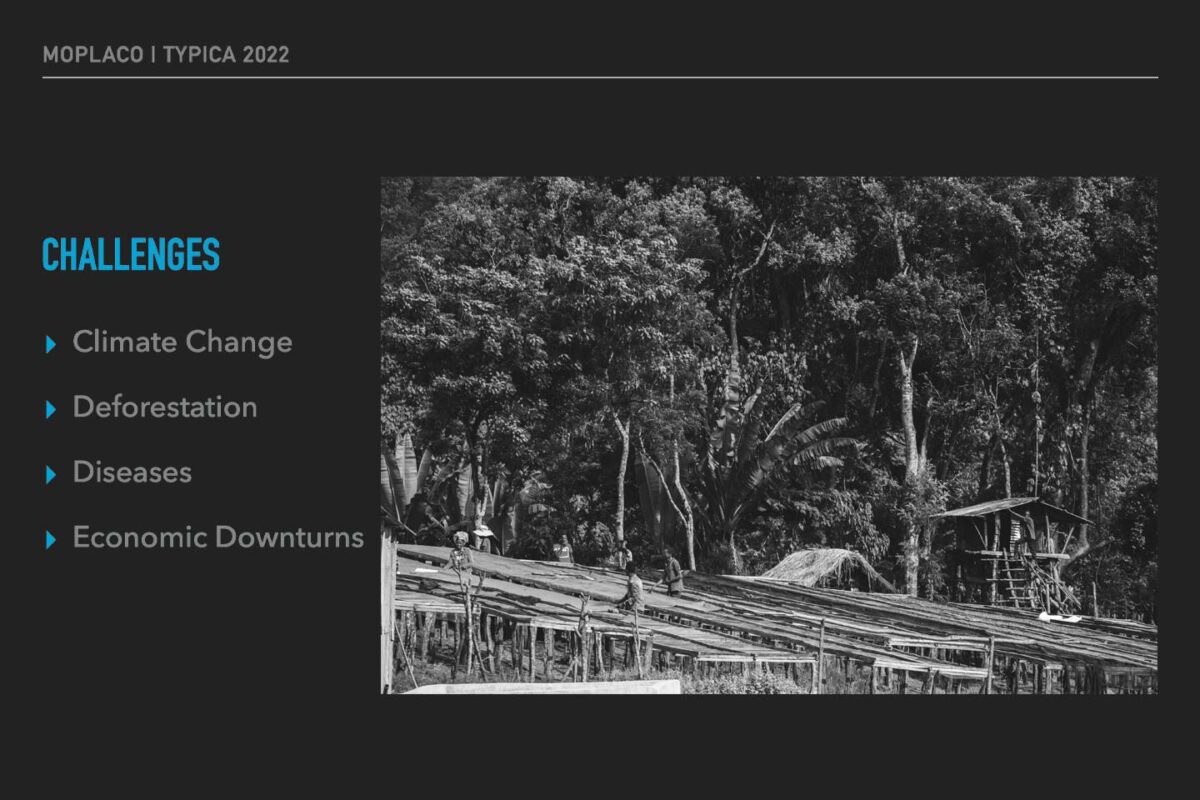
What are the challenges we are facing? I think there are challenges for everyone is climate change. Deforestation, which is very sad to see in front of our eyes. Diseases and an economic downturn. So we can talk a lot about how coffee changes our lives. But we have to think how coffee changes the lives of people that produce it.
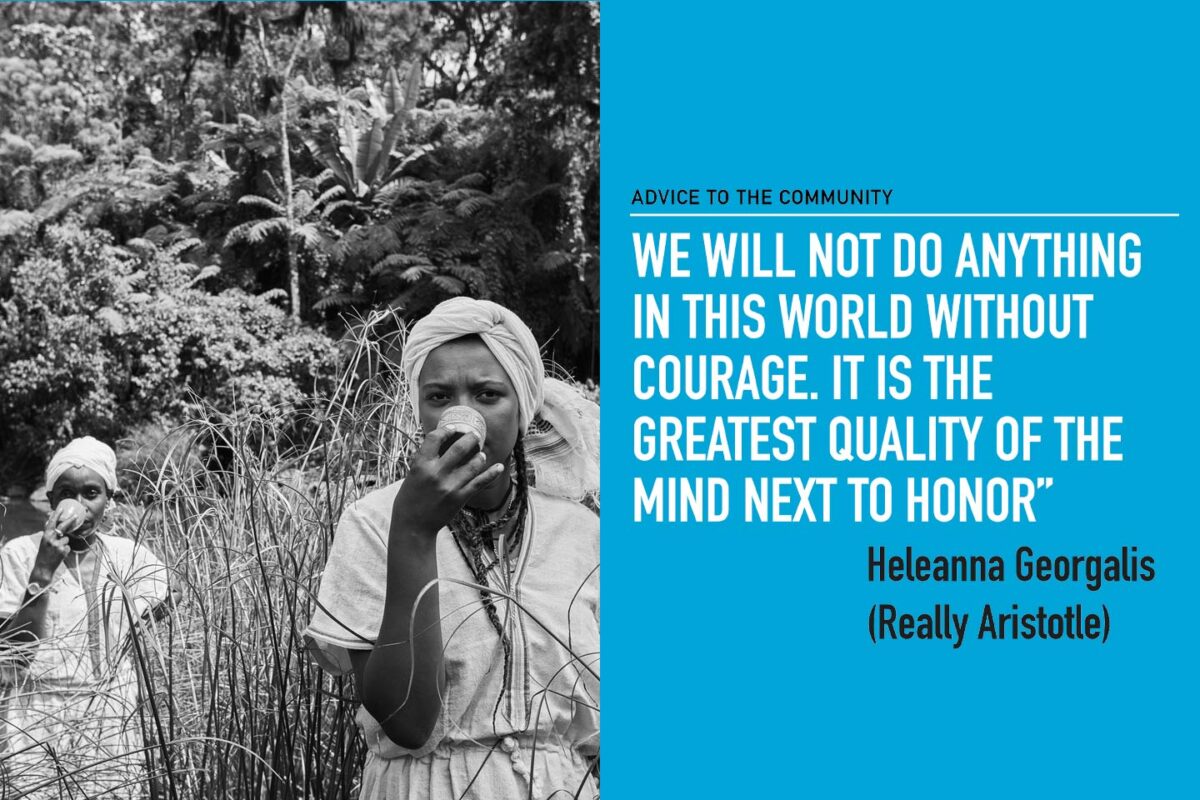
So what is the advice to the community I want to give? And this is what Masa and Ayane asked me. And again, this is a philosophical quote by Plato. “We will do nothing in this world without courage. And it is the greatest quality of the mind next to honor.”
So people have been asking me, “Why people buy the prices so cheaply from us?” Mary was asking this question many times and some Bolivian people. It’s because we are not courageous enough to see our worth. And I believe from now on we have to see it. So thank you very much for this opportunity.
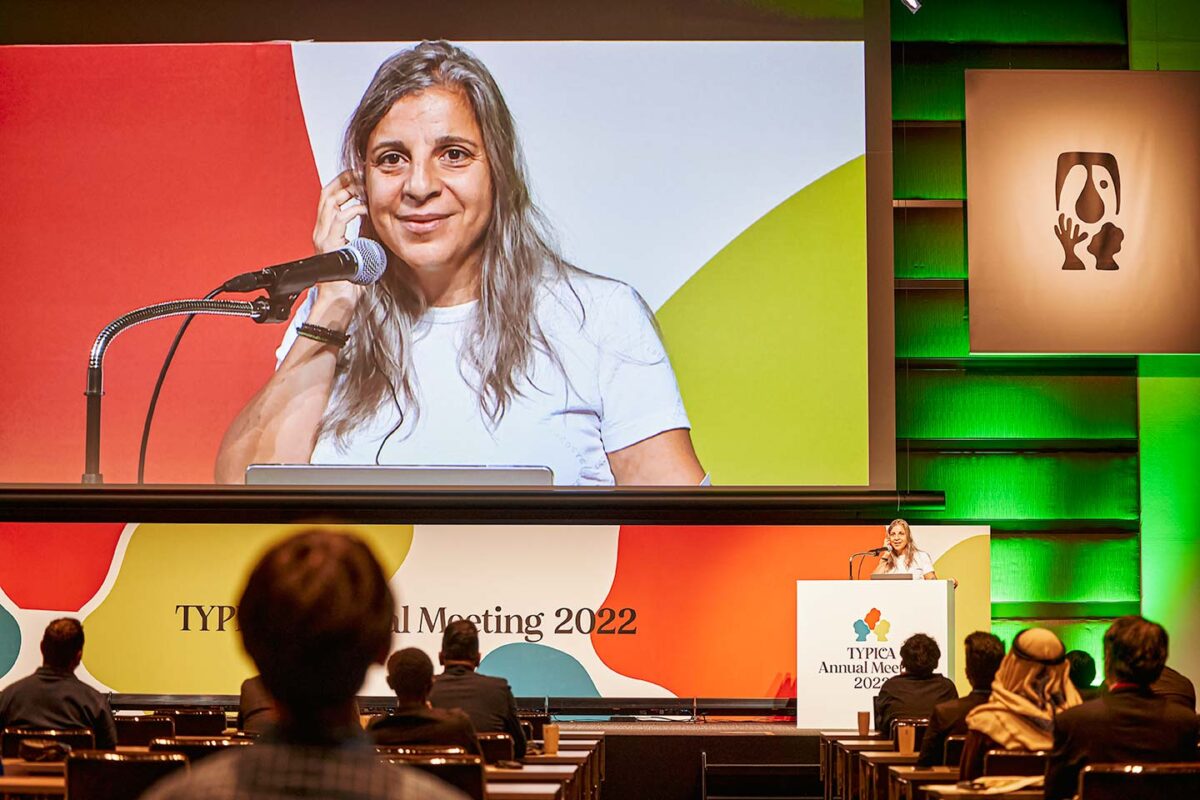
【Q&A】
Q. Thank you, Heleanna for your great presentation. Thank you so much for inspiring also us woman on coffee. Your presentation was really great. And my question is the same question you did to Nadine. What has been the greatest challenge you have had in the latest time being in this industry?
A. So again, like Nadine, being a young woman at the time I was 35, now I’m no longer 35. And I had never lived in Ethiopia before.
So people saw me like this passerby that I would come to say hello to my parents, and go back to my European lifestyle. And that’s what I was actually. So they never really believed that I’m going to stay here for as long as I did, and I didn’t either.
So in fact, I was working for the pharmaceutical industry at the time. And I told my boss I’m going for two months and I’m coming back. And in my very naive mind, I thought that in two months, I’m going to sort out everything and return.
So after a year, I went back to him and I thought, ”You know what? Thank you for keeping my job, but I don’t think I’m coming back.” In truth I have to stay for 15 years.
And the other difficult thing, Angelica, was the fact that I had to fill very big shoes. My father was a very powerful and a very well known man. And I was nothing. So I had to be my own name and it’s a challenge but I accepted it.
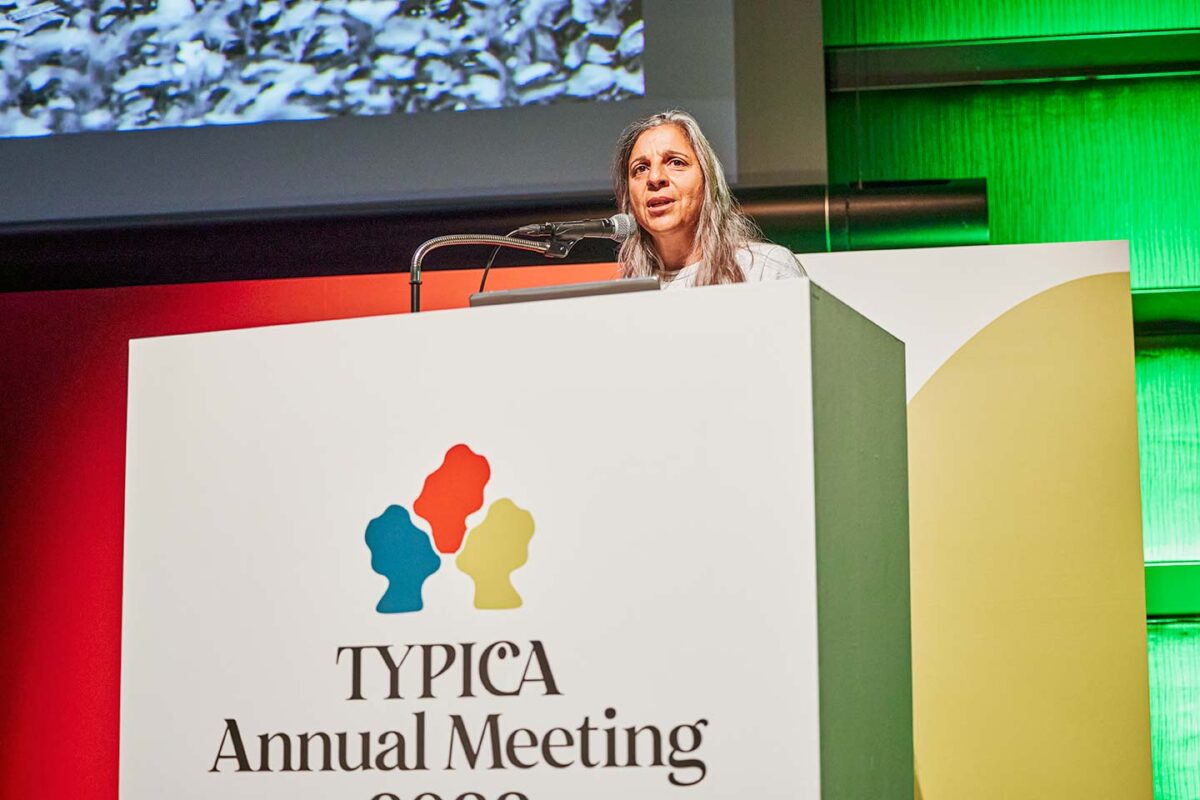
Q. Thank you for your presentation. I’ve reserved your coffee, so I’ll look forward to it. You mentioned the importance of being open-minded. Do you have any routine to keep yourself open?
Okay, that’s a very hard question again. So I keep on showing to people that they can be changed. How? Sometimes people say ”No, no, no. Heleanna, we cannot do this because this is not going to be successful.” And I say ”We don’t do everything for success.” And I had to really push my way through this.
“Because people’s minds were, ”we have to continue the old way.This is the safe way.” ” So the old way is always safe, right? It’s better the endeavor we know than the endeavor we don’t know.
So I don’t apply a routine. I just bring people a lot of books. And sometimes they read them, sometimes they don’t.
I also expose my people to many new experiences. So I take my people traveling, in fact. Because when you live in one country and you see the same thing every day, you’ll believe this is the reality. The world that you see becomes your reality.
But when you start traveling, and you see that people live in very different ways, and they have different concepts. This is when their mind starts to open also.
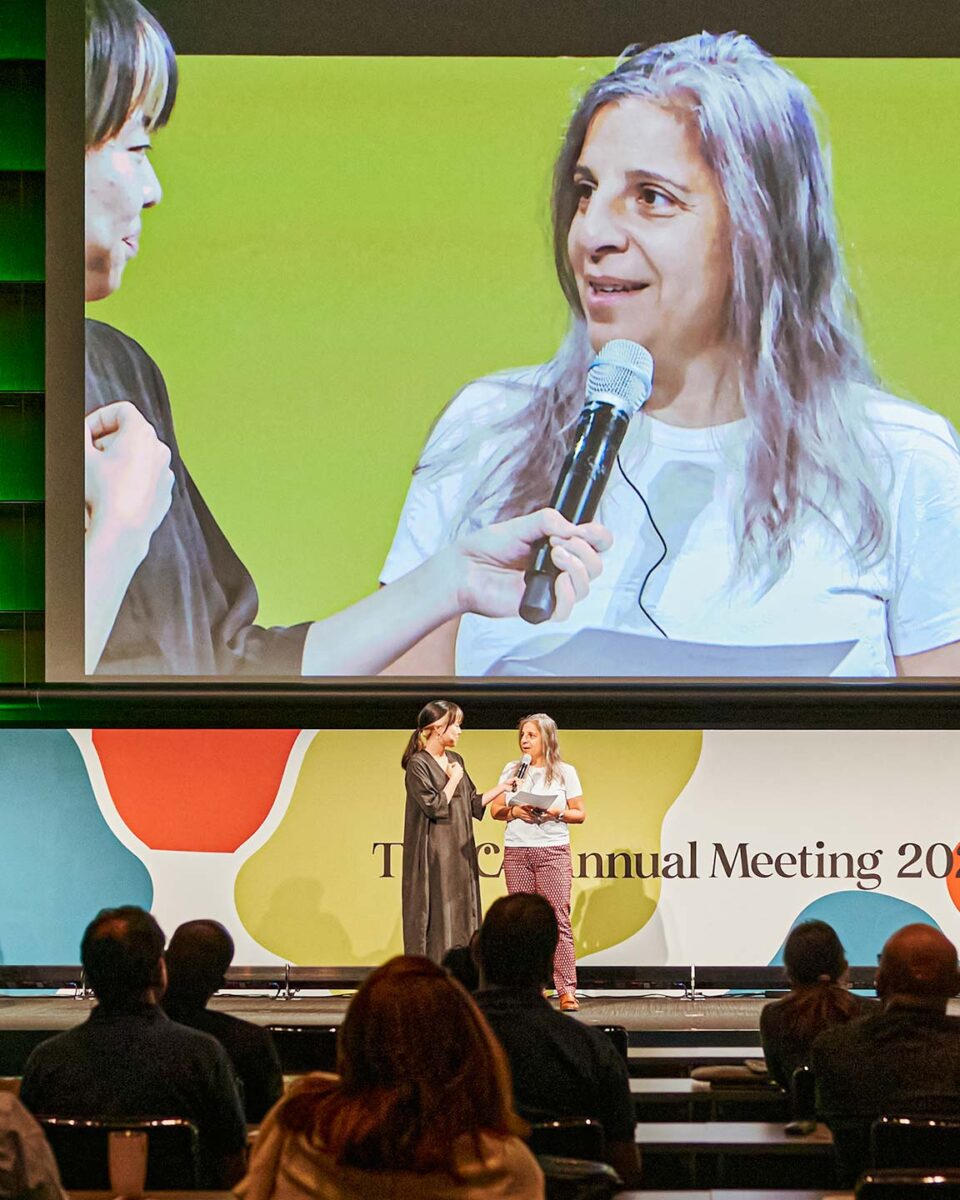
So for example, the first time I took my people to Rwanda. They were shocked because Rwanda is so different to Ethiopia. First, the discipline is a bit like the Japan of Africa. Extremely clean. People are very well organized. People are very well respectful. And at the same time, they do things differently than us.
So I will tell you an experience in Rwanda that actually shocked me and it was by chance. We were driving with a Starbucks team to go to some washing stations. And unexpectedly, the president of Rwanda was behind us. And we passed one washing station that had thrown water into the river.
And again, I was with my people from Ethiopia at that time, and suddenly, the car of Kagame stops. And we didn’t know what was happening because we didn’t know he was behind us. And the man himself steps out. He asks one question, ”How can people live with this smell?”
And I was really taken aback because no one in my country, whether it’s Greece or Ethiopia, nobody ever wonders why we pollute the river. The people themselves don’t wonder that. So the president of Rwanda stopped and said, ”No. You people are dirty.”
He didn’t punish them. He didn’t shout at them. He said how can you accept as human beings to live in this way? To smell this smell?
And he summoned Starbucks and told them to find a solution for this problem immediately. They all came up with a solution of filtering their washing stations with lime. It was a very fast decision.
And again, my people were there and they experienced that because throwing dirt into the river was something very normal to them. They didn’t think that anyone in Africa can live in a different way.
So traveling opens your mind and I make it a point to take my people traveling. And this is the only routine I can apply as well as books. Thank you for your question.